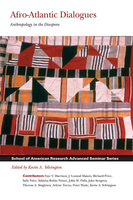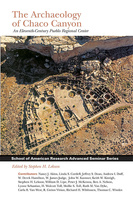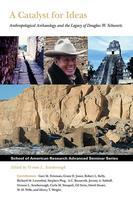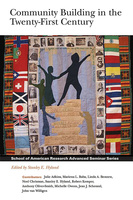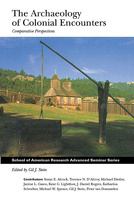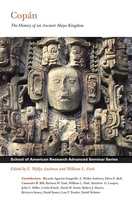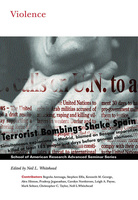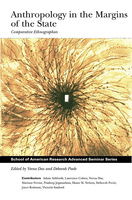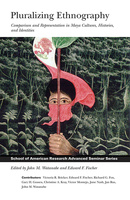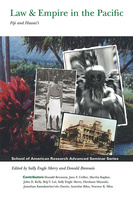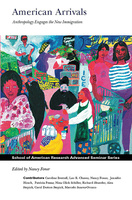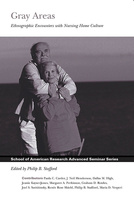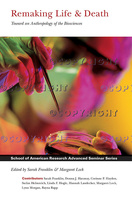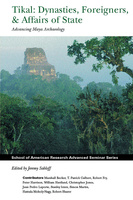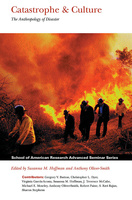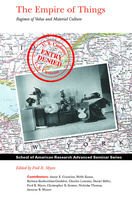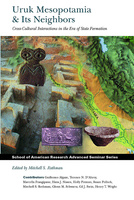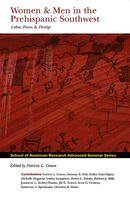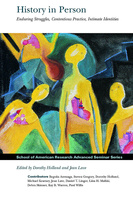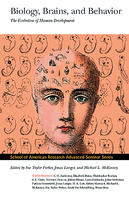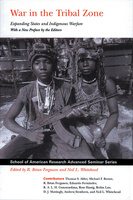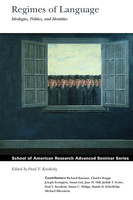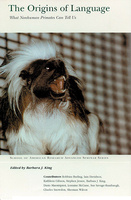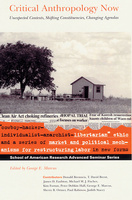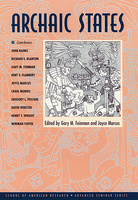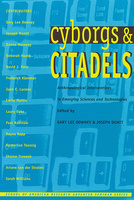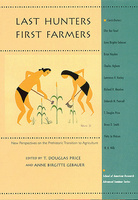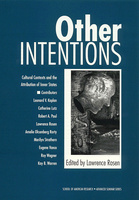Afro-Atlantic Dialogues
Anthropology in the Diaspora
This book breaks new theoretical and methodological ground in the study of the African diaspora in the Atlantic world. Leading scholars of archaeology, linguistics, and socio-cultural anthropology draw upon extensive field experiences and archival investigations of black communities in North America, the Caribbean, South America, and Africa to challenge received paradigms in Afro-American anthropology.
The Archaeology of Chaco Canyon
An Eleventh-Century Pueblo Regional Center
The site of a great Ancestral Pueblo center in the 11th and 12th centuries AD, the ruins in Chaco Canyon look like a city to some archaeologists, a ceremonial center to others. Chaco and the people who created its monumental great houses, extensive roads, and network of outlying settlements remain an enigma in American archaeology.
A Catalyst for Ideas
Anthropological Archaeology and the Legacy of Douglas W. Schwartz
In his thirty-four years as president of the School of American Research, Douglas W. Schwartz's far-reaching vision placed SAR on the intellectual edge of research about humans across the globe. Nowhere is this more evident than in his influence on the field of anthropological archaeology.
Community Building in the Twenty-First Century
"Community" has long been a critical concept for social scientists, and never more so amid the growing economic inequity, natural and human disasters, and warfare of the opening years of the twenty-first century. In this volume, leading scholar-activists develop a conceptual framework for both the theory and practice of building communities.
Globalization, Water, and Health
Resource Management in Times of Scarcity
This book is about crime and passion, life and death, lofty goals and squalid realities. It is a book about water. Global disparities in health and access to water are two major threats to world stability.
The Archaeology of Colonial Encounters
Comparative Perspectives
Colonialism and its legacies have emerged as one of the most important research topics in anthropology. Indeed, we now understand that colonialism gave rise to and shaped the discipline. However, the understanding of colonization in anthropology, history, and other fields derives largely from studies of European expansion.
Copán
The History of an Ancient Maya Kingdom
This volume collects leading scholarship on one of the most important archaeological complexes in the ancient Maya world. The authors-internationally renowned experts who participated in the long-running Copán Acropolis Archaeological Project-address enduring themes in Maya archaeology.
Violence
Can we understand violence not as evidence of cultural rupture but as a form of cultural expression itself? Ten prominent scholars engage this question across geographies as diverse at their theoretical positions, in cases drawn from fieldwork in Indonesia, Cambodia, Mozambique, Rwanda, Sierra Leone, South Africa, South America, Sri Lanka, Spain, and the United States.
Anthropology in the Margins of the State
The very form and reach of the modern state are changing radically under the pressure of globalization. Featuring nine of the leading scholars in the field, this innovative exploration of these transformations develops an ethnographic methodology and theoretical apparatus to assess perceptions of power in three regions where state reform and violence have been particularly dramatic: Africa, Latin America, and South Asia.
Pluralizing Ethnography
Comparison and Representation in Maya Cultures, Histories, and Identities
This volume brings together eight Maya specialists and a prominent anthropological theorist as discussant to assess the contrasting historical circumstances and emerging cultural futures of Maya in Mexico and Guatemala.
Law and Empire in the Pacific
Fiji and Hawai`i
Focusing on the intimate relationship between law, culture, and the production of social knowledge, these essays re-center law in social theory. The authors analyze the transition from chiefdom to capitalism, colonizers' racial and governmental ideologies, land and labor policies, and contemporary efforts to recuperate indigenous culture and assert or maintain indigenous sovereignty. Speaking to Fijian and Hawaiian circumstances, this volume illuminates the role of legal and archival practice in constructing ethnic and political identities and producing colonial and anthropological knowledge.
American Arrivals
Anthropology Engages the New Immigration
Soaring immigration to the United States in the past few decades has reawakened both popular and scholarly interest in this important issue. American Arrivals highlights the important insights of anthropology for the field of migration studies.
Gray Areas
Ethnographic Encounters with Nursing Home Culture
This volume features ten scholars from anthropology, nursing, sociology, gerontology, human geography, and other disciplines who provide ethnographic case studies exploring critical care decision-making, models of care for people with Alzheimer's disease, the way residents cope with the limitations, indignities, and opportunities of nursing home life, the roles of family members and nursing home employees, and the formulation of assisted living.
Remaking Life and Death
Toward an Anthropology of the Biosciences
The boundaries of life now occupy a place of central concern among biological anthropologists. Because of the centrality of the modern biological definition of life to Euro-American medicine and anthropology, the definition of life itself and its contestation exemplify competing uses of knowledge.
Tikal: Dynasties, Foreigners, and Affairs of State
Advancing Maya Archaeology
New insights from the Tikal excavations and epigraphic breakthroughs suggest that a thriving marketplace existed in the center of the city, that foreigners comprised a significant element of its populace, and that differences in tomb form and contents signal the changing fortunes of Tikal's rulers.
Catastrophe and Culture
The Anthropology of Disaster
At a time of increasing globalization and worldwide vulnerability, the study of disasters has become an important focus for anthropological research-one where the four fields of anthropology are synthesized to address the multidimensionality of the effects to a community's social structures and relationship to the environment.
The Empire of Things
Regimes of Value and Material Culture
Representing a new wave of thinking about material culture studies-a topic long overdue for reevaluation-the essays in this volume take a fresh look at the relationship between material culture and exchange theory and illuminate the changing patterns of cultural flow in an increasingly global economy and the cultural differences registered in "regimes of value."
Uruk Mesopotamia and Its Neighbors
Cross-cultural Interactions in the Era of State Formation
In Uruk Mesopotamia and Its Neighbors, ten field and theoretical archaeologists working in the area today offer an overview and analysis of new data and interpretations for Greater Mesopotamia during the late fifth and fourth millennia B.C.
Women and Men in the Prehispanic Southwest
Labor, Power, and Prestige
Women and Men in the Prehispanic Southwest takes a groundbreaking look at gendered activities in prehistory and the differential access that women and men had to sources and symbols of power and prestige.
History in Person
Enduring Struggles, Contentious Practice, Intimate Identities
Extended conflict situations in Northern Ireland or South Africa, the local effects of the rise of multinational corporations, and conflicts in workplaces, households, and academic fields are all crucibles for the forging of identities. In this volume, the authors bring their research to bear on enduring struggles and the practices of identity within those struggles. This collection of essays explores the innermost, generative aspects of subjects as social, cultural, and historical beings and raises serious questions about long-term conflicts and sustained identities in the world today.
Biology, Brains, and Behavior
The Evolution of Human Development
An exciting new cross-disciplinary field of biocultural research is emerging at the start of the twenty-first century: developmental evolutionary biology.
War in the Tribal Zone
Expanding States and Indigenous Warfare
War in the Tribal Zone, the 1991 anthropology of war classic, is back in print with a new preface by the editors. Their timely and insightful essay examines the occurrence of ethnic conflict and violence in the decade since the idea of the "tribal zone" originally was formulated.
Regimes of Language
Ideologies, Polities, and Identities
In Regimes of Language, ten leading linguistic anthropologists integrate two often segregated domains: politics (without language) and language (without politics). Their essays contribute to an understanding of the role of language ideologies and discursive practices in state formation, nationalism, and the maintenance of ethnic groups, on the one hand, and in the creation of national, ethnic, and professional identities, on the other.
The Origins of Language
What Nonhuman Primates Can Tell Us
In The Origins of Language, ten primatologists and paleoanthropologists conduct a comprehensive examination of the nonhuman primate data, discussing different views of what language is and suggesting how the primatological perspective can be used to fashion more rigorous theories of language origins and evolution.
Critical Anthropology Now
Unexpected Contexts, Shifting Constituencies, Changing Agendas
Building on the legacy of Writing Culture, Critical Anthropology Now vividly represents the changing nature of anthropological research practice, demonstrating how new and more complicated locations of research-from the boardrooms of multinational corporations to the chat rooms of the Internet-are giving rise to shifts in the character of fieldwork and fieldworker.
Archaic States
One of the most challenging problems facing contemporary archaeology concerns the operation and diversity of ancient states. This volume addresses how ancient states were structured and how they operated, an understanding of which is key to our ability to interpret a state's rise or fall.
Cyborgs and Citadels
Anthropological Interventions in Emerging Sciences and Technologies
Some of the country's most influential thinkers use anthropological methods and theories to examine the practices and practitioners of contemporary science, technology, and medicine in the United States. The authors explore such questions as how science gains authority to direct truth practices, the boundaries between humans and machines, and how science, technology, and medicine contribute to the fashioning of selves.
Senses of Place
The complex relationship of people to places has come under increasing scholarly scrutiny in recent years as acute global conditions of exile, displacement, and inflamed borders-to say nothing of struggles by indigenous peoples and cultural minorities for ancestral homelands, land rights, and retention of sacred places-have brought the political question of place into sharp focus.
Last Hunters, First Farmers
New Perspectives on the Prehistoric Transition to Agriculture
In case studies ranging from the Far East to the American Southwest, the authors of Last Hunters-First Farmers provide a global perspective on contemporary research into the origins of agriculture. Downplaying more traditional explanations of the turn to agriculture, such as the influence of marginal environments and population pressures, the authors emphasize instead the importance of the resource-rich areas in which agriculture began, the complex social organizations already in place, the role of sedentism, and, in some locales, the advent of economic intensification and competition.
Other Intentions
Cultural Contexts and the Attribution of Inner States
The authors argue that although intentionality might appear to be a wholly abstract phenomenon, it is deeply entwined with the nature and distribution of power, the portrayal of events, the assessment of personhood, the interplay of trust and deception, and the assessment of moral and legal responsibility.

